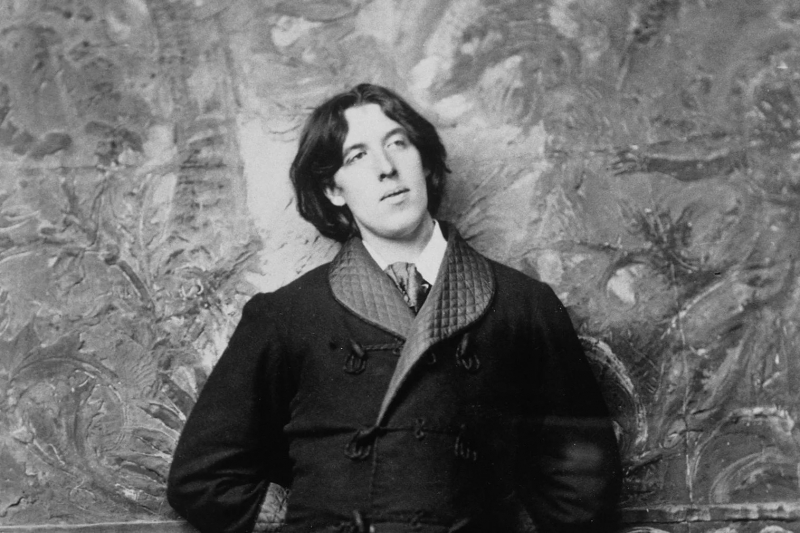Oscar Wilde

Oscar Fingal O'Flahertie Wills Wilde (16 October 1854 – 30 November 1900) was one of the most popular playwrights in London in the early 1890s, and also a scandalous figure throughout his whole life. To this day, many people remember him for his works, of course, such as his epigrams, plays, and especially his novel The Picture of Dorian Gray. However, he is also remembered for the circumstances surrounding his early death from meningitis at the age of 46, his imprisonment, and his criminal conviction for gross indecency for consenting to homosexual relations in "one of the earliest celebrity trials."
He experimented with a variety of literary activities while serving as a spokesperson for aestheticism: he published a book of poems, gave lectures on the new "English Renaissance in Art" and interior design in the United States and Canada, and then went back to London where he was a prolific journalist. In the 1890s, he included themes of decadence, deceit, and beauty in The Picture of Dorian Gray, his only novel and also his most famous work. In 1891, he wrote a drama named Salome in French. He also wrote four society comedies in the early 1890s. These works are what made him one of the most successful playwrights of late-Victorian London.
At the height of his fame and success, Wilde was arrested and put through trials for "gross indecency with men", then convicted and sentenced to two years of hard labor, and was jailed from 1895 to 1897. His lengthy letter De Profundis, which explores his spiritual journey through his sufferings and serves as a somber antithesis to his earlier philosophy of pleasure, was written during his final year in prison. After being released from prison, he left immediately for France and never come back to Ireland or Britain. After that, he wrote his final work, The Ballad of Reading Gaol (1898), which was a lengthy poem that reflected on the punishing rhythms of his prison life.










